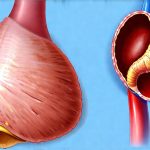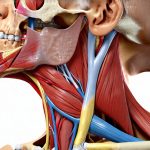The feeling is familiar for many: waking up with muscles tight, achy, and even seizing in painful spasms after several nights of inadequate sleep. It’s more than just the general grogginess we associate with being tired; it’s a distinct cramping sensation that can range from mildly annoying to debilitatingly severe. This isn’t necessarily an indication of a serious underlying medical condition, but rather a complex physiological response to sleep deprivation and its cascading effects on the body. Understanding why this happens requires delving into the intricate relationship between sleep, muscle function, electrolyte balance, nervous system regulation, and hormonal fluctuations – all systems profoundly impacted when we consistently shortchange ourselves on rest.
The connection isn’t always immediately obvious. We often think of cramping as something related to intense exercise or dehydration, but chronic sleep loss creates a similar internal environment that predisposes us to these uncomfortable episodes. It’s important to acknowledge the pervasive nature of sleep deficiency in modern life – a lifestyle increasingly characterized by demanding schedules and constant connectivity. This makes understanding the physiological mechanisms behind post-sleep cramping vital for anyone seeking to optimize their health and well-being, not just athletes or those with pre-existing conditions. Recognizing the warning signs and adopting strategies to improve sleep hygiene can be a proactive step toward preventing these unwelcome disruptions. Perhaps adjusting your diet could help too; consider stomach-soothing foods for better digestion.
The Sleep-Muscle Connection: A Deeper Dive
Sleep isn’t merely a period of inactivity; it’s an active restorative process crucial for muscle repair, recovery, and optimal function. During deep sleep stages, the body releases growth hormone, which is essential for muscle protein synthesis – the rebuilding and strengthening of muscle tissue. When sleep is consistently disrupted or shortened, this natural regenerative process is hampered, leaving muscles more vulnerable to fatigue, tightness, and ultimately, cramping. The lack of sufficient restorative time can also lead to an accumulation of metabolic waste products within the muscles themselves, further contributing to discomfort and spasms. Think of it like constantly using a muscle without giving it adequate recovery time – eventually, it will protest.
Furthermore, sleep deprivation impacts neuromuscular control—the communication between the nervous system and muscles. The brain doesn’t effectively consolidate motor skills during poor sleep, leading to less efficient movement patterns and increased risk of strain on specific muscle groups. This inefficient coordination can result in overuse or improper firing of muscles, triggering cramps. Imagine trying to execute a complex task while mentally exhausted; you’re more likely to make mistakes and exert unnecessary effort. The same principle applies to your muscles when they aren’t given the neurological support that comes with adequate sleep. If you frequently overeat, evening gut reset meals can help alleviate some of these issues.
The impact extends beyond just physical factors. Sleep loss also increases cortisol levels—the body’s primary stress hormone. Chronically elevated cortisol can disrupt electrolyte balance, specifically potassium, magnesium, and calcium – all essential for proper muscle function. These electrolytes play a critical role in nerve impulse transmission and muscle contraction; imbalances can lead to unpredictable muscle behavior and cramping. It’s a complex interplay where sleep deprivation initiates a cascade of physiological changes that ultimately increase the likelihood of painful spasms.
Electrolyte Imbalance & Muscle Function
Electrolytes are often overlooked, but they are fundamental to how our muscles work. They create the electrical gradients necessary for nerve impulses to travel and trigger muscle contractions. Potassium helps regulate fluid balance within muscle cells, while magnesium is crucial for muscle relaxation. Calcium facilitates the actual contraction process. When sleep is disrupted, hormonal shifts (like increased cortisol) can interfere with electrolyte absorption and excretion, leading to imbalances. – Low potassium can cause weakness and cramping. – Magnesium deficiency is linked to muscle twitching and spasms. – Dehydration exacerbates these issues, further disrupting electrolyte levels.
Restoring adequate hydration is a good starting point, but it’s rarely enough on its own after several days of poor sleep. Dietary sources of electrolytes are important – bananas (potassium), leafy greens (magnesium), and dairy products (calcium) can all help replenish lost minerals. However, severely depleted electrolyte levels may require professional assessment to determine if supplementation is necessary. It’s essential not to self-supplement with high doses of electrolytes without guidance from a healthcare provider, as imbalances in one direction can create new problems. A proactive approach might include digestive rest days to allow your system to recalibrate.
Addressing the root cause – improving sleep – is ultimately the most effective long-term solution. Simply replenishing electrolytes won’t prevent cramping if you continue to chronically deprive yourself of rest. The body needs consistent restorative periods to maintain optimal electrolyte balance and muscle function. This emphasizes the importance of a holistic approach that tackles both symptoms and underlying causes.
Nervous System Dysregulation & Pain Perception
The nervous system plays a pivotal role in both initiating cramps and interpreting pain signals. Sleep deprivation disrupts the autonomic nervous system—the part responsible for regulating involuntary functions like heart rate, breathing, and muscle tone. This can lead to an overstimulation of sympathetic nervous system activity (fight-or-flight response) which increases muscle tension and sensitivity to pain. Essentially, your body is in a heightened state of alert, making you more prone to perceiving discomfort as intense or prolonged.
Moreover, chronic sleep loss affects the way the brain processes pain signals. Research suggests that sleep deprivation lowers the pain threshold—meaning it takes less stimulation to trigger a perception of pain. This contributes to the feeling that cramps are more severe and persistent after inadequate rest. The brain isn’t able to effectively dampen or modulate pain signals, leading to an amplified experience of discomfort.
This neurological impact highlights why simple stretching exercises may not always provide immediate relief. While stretching can help alleviate tension, it doesn’t address the underlying nervous system dysregulation contributing to the cramping sensation. Techniques like mindfulness meditation, deep breathing exercises, and progressive muscle relaxation can help calm the nervous system and reduce overall stress levels – potentially mitigating the intensity of cramps. Understanding how to reset your gut after periods of stress could also be beneficial.
The Role of Inflammation & Muscle Recovery
Inflammation is a natural part of the body’s healing process, but chronic inflammation—often exacerbated by sleep deprivation—can contribute to muscle pain and cramping. Lack of sleep increases inflammatory markers in the blood, creating a systemic state of low-grade inflammation. This can sensitize nerve endings and make muscles more prone to spasms. It also hinders the recovery process after even mild physical activity.
Muscle damage occurs during normal use, and inflammation is needed to repair it. However, if inflammation persists chronically due to sleep loss, it interferes with the rebuilding and strengthening of muscle tissue. The result is a vicious cycle where inflamed muscles are more likely to cramp, further exacerbating the inflammatory response. – Prioritizing anti-inflammatory foods (fruits, vegetables, healthy fats) can help counteract some of these effects. – Regular gentle exercise (yoga, walking) promotes circulation and aids in recovery.
Focusing on sleep hygiene is paramount for reducing inflammation. This includes establishing a regular sleep schedule, creating a relaxing bedtime routine, optimizing your sleep environment (dark, quiet, cool), and avoiding stimulants like caffeine and alcohol before bed. Addressing underlying stress factors can also help reduce chronic inflammation and improve muscle recovery. If you have experienced a colitis flare, follow-up tools may be beneficial for monitoring your health.
It’s crucial to remember that this information is for general knowledge purposes only and should not be considered medical advice. If you experience persistent or severe cramping, especially if accompanied by other symptoms, consult a healthcare professional to rule out any underlying medical conditions and receive personalized guidance. If GERD contributes to these issues, consider researching GERD and breathlessness. Finally, rebuilding gut health after medication may be a step in the right direction: rebuild gut health.


















